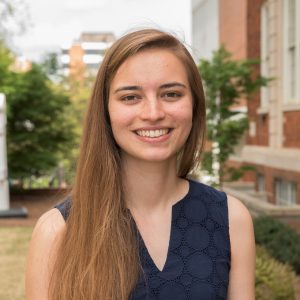
Lauren Gambill
I am a graduate student in the Systems, Synthetic, and Physical Biology program at Rice University. I am in the Chappell Lab and build RNA regulators.

I am a graduate student in the Systems, Synthetic, and Physical Biology program at Rice University. I am in the Chappell Lab and build RNA regulators.
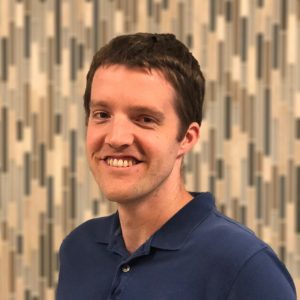
Arthur received a BS in Chemical Engineering from Caltech and a PhD in Bioengineering from UCSD. As a Simons-Helen Hay Whitney Fellow in the Süel Laboratory at UCSD, he developed new approaches to decipher collective mechanisms underlying bacterial biofilm organization. In particular, how a conflict between cooperation and competition is resolved through collective metabolic oscillations that increase nutrient availability for sheltered interior cells. Arthur found that these oscillations are coordinated by ion channel-mediated electrochemical signals, revealing an unexpected functional similarity between ion channels in neurons and those in microbes. These findings serve to establish a prokaryotic paradigm for electrical signaling and hint at the extent to which unicellular bacteria are capable of behaving as a proto-multicellular organism. Arthur’s laboratory is currently working to leverage these exciting findings to develop a new synthetic biology toolbox based on ion channel-mediated electrochemical communication in bacterial communities. Arthur is currently an Assistant Professor at Northwestern University in the Center for Synthetic Biology and holds a CASI award from the Burroughs Wellcome Fund, a Young Investigator award from the Army Research Office, and a Packard Fellowship.
Skype a Scientist matches scientists with classrooms around the world!
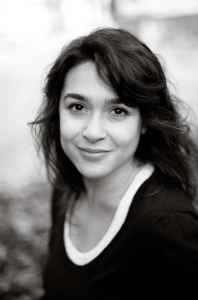
Betul Kacar (Betül Kaçar) is an assistant professor at the University of Arizona Departments of Cell Biology and Astronomy She is also an associate professor at Earth-Life Science Institute of Tokyo Institute of Technology. She received her PhD from Emory University working jointly in the Department of Chemistry and the Emory School of Medicine. She was awarded a NASA Astrobiology Postdoctoral Fellowship in 2012 to bring abstractly reconstructed ancestral DNA sequences into the lab for physical, chemical and biological characterization by expressing inferred DNA sequences in modern organisms. Between 2014 and 2017 she lead an independent project funded by the John Templeton Foundation at Harvard University. In 2018, she moved her laboratory to University of Arizona where she is focusing on reconstructing key enzymatic intermediates between biological activity and global geochemical reservoirs throughout the Earth’s deep history. Betul is named a NASA Early Career Fellow in 2018.
Betul Kacar’s work has been recognized by various media outlets, such as NOVA Science, BBC Focus, New Scientist, WGBH, MIT Technology Review, SETI Institute, Astrobiology Magazine, Wired, Popular Science, PBS, iO9, CNN Turk, Quanta Magazine. She cares deeply about science education, outreach and communication, in 2012 she co-founded SAGANet,: The Online STEM Mentorship and Education Network, she serves on the Board of Advisory Committee of the MIT BioBuilder Foundation and was named “Way Cool Scientist” by the Science Club for Girls, USA in 2016.
Betul Kacar was recently awarded grants from the Templeton Foundation, the National Science Foundation and the NASA Exobiology and Evolutionary Biology Programs as well as Harvard Origins Initiative to continue this work deeper into the past and to resurrect greater portions of the universally shared ancestral genome. She is interested in understanding life’s origins, evolution and possible existence elsewhere in t
Please use the form below to request changes to your EBRC profile.

I’m currently a scientist at Zymergen, primarily working on strain and metabolic engineering. My background is in molecular biology and evolutionary genetics. My PhD was on the impact of mutations and natural polymorphisms on gene expression in yeast, while my postdoc work was on using DNA barcoding and experimental evolution to study mutations that contribute to evolutionary adaptation. My expertise is in molecular biology, genetics, and microbiology.



Stacy-Anne Morgan is a Scientist at Zymergen. She received her MSc. (2005) and Ph.D. (2010) degrees from the Department of Chemistry at the University of Toronto where her work focused on engineering photocontrolled DNA-binding proteins. From 2011 to 2016, she was a postdoctoral researcher in Dave Savage’s group at the University of California, Berkeley where she worked on developing genetically encoded fluorescent sensors for metabolites. She is interested in working to increase diversity in STEM fields.


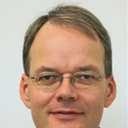

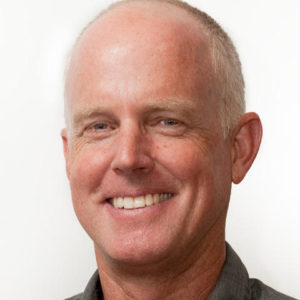
Michael Fero is a Co-Founder and CEO of TeselaGen Biotechnology Inc., a San Francisco based software company that has built Synthetic Evolution® – the AI driven operating system for synthetic biology. Michael received his Ph.D. in Physics from the University of California and contributed to the verification of the Standard Model at CERN and SLAC via the world’s most precise measurement of the Weinberg angle governing the coupling between the electromagnetic and weak interactions. Dr. Fero’s interest in biology led to a collaboration with Pat Brown and David Botstein at Stanford to build the world’s first human genome microarrays and do early research on expression level characterization of cancer cells. Dr. Fero then turned to systems biology where, in collaboration with Lucy Shapiro and Harley McAdams, he developed an automated high content diffraction limited microscopic screen of triply fluorescently tagged bacteria to better understand the bacterial cell cycle. Afterwards, Dr. Fero and two Stanford Shapiro/McAdams Lab colleagues started TeselaGen Biotechnology as a way to accelerate synthetic biology and the bio-based economy. Seeing a big deficiency in biologists’ ability to create what they imagine, TeselaGen focuses on making the mind to molecule process easier and faster with an AI driven, cloud-based enterprise platform for synthetic biology.
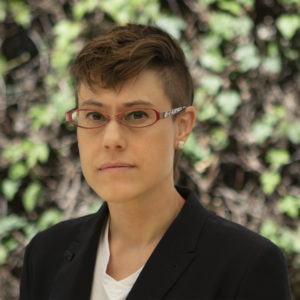
Carrie Cizauskas holds a veterinary degree (DVM) from Cornell and a PhD in disease ecology from the University of California Berkeley. Carrie started doing research as an undergraduate at the University of Wisconsin, Madison, completing a senior honors thesis on the immunology of malaria and earning the College of Letters and Science Dean’s Prize. Their veterinary work focused on wildlife and population medicine, leading to NIH EEID-supported graduate research in the Wayne Getz lab in the Department of Environmental Sciences, Policy, and Management at Berkeley on the ecological immunology and physiology of environmentally-transmitted coinfections in wildlife. Carrie did a Grand Challenges-supported postdoctoral fellowship at Princeton with Andy Dobson and Andrea Graham, researching interactions between the gut microbiome and macroparasites in wild non-human primates, and examining issues of infectious disease eradication and conservation. Carrie then made the leap from academia to industry, and now works as the Manager of Publishing and Academic Relations at Zymergen. As such, they work across the company to determine how to analyze data from interdisciplinary projects and publish on research involving microbiology, molecular biology, chemistry, data science, machine learning, and automation.
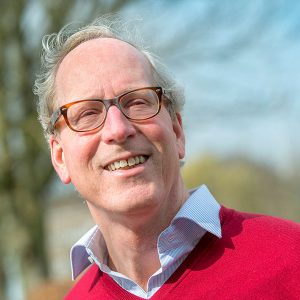
I am currently working on natural product discovery programs, yeast strains and enzymes that can convert agricultural residues into bioethanol and various microbial cell factory programs for more sustainable production of enzymes, biochemicals and natural products, such as antibiotics. Another aspect is the development of both traditional evolution and bioinformatics methods for fast screening and safe engineering of desired microbial cell factories. At the University of Groningen in the Netherlands, my projects focus on the development of new cell engineering methods for filamentous fungi, to accelerate the discovery of natural products for – among other things – new antibiotics.The aspect of my work that excites and inspires me the most is that Biotechnology can contribute in many ways to the big global societal challenges, as outlined by the UN Sustainable Development Goals, by addressing key technical challenges and that DSM is in the position to make a real contribution. The fast developments in the Biological Sciences are both a constant challenge and a source of inspiration, especially the increasing knowledge and technologies to characterize, understand and deploy microbial life. Another source of inspiration is the necessity to do so in a responsible manner, which requires good education, relevant stakeholder networks, clear communication and continuous learning.
